Peanut Butter isn’t a protein, here’s why.
A few months ago I posted this reel about how to hack your calories and it went semi-viral. People were shocked to hear that peanut butter does not in fact count as a protein! I ruffled a few feathers, but I’m glad this topic was brought to light. Let’s say it one more time…
Peanut Butter isn’t a protein, here’s why.
Peanut butter does not count as your primary protein.
Yes, peanut butter does contain protein, but it’s not equal to that of other proteins such as eggs, chicken, beef, tofu, etc. Instead, peanut butter counts towards your recommended 2-3 tbsp of fat per meal, a vital part of a balanced diet. Learn more about a balanced diet and my approach, VPFC, here. So, if not protein, fat? If not creamy, crunchy? As a Registered Dietitian and Diabetes educator, I’m here to talk about all things peanut butter health!
Is peanut butter healthy?
Yes, and don’t let anyone tell you otherwise! But to clarify, not all peanut butter is categorically “healthy”. Because healthy can be defined differently, here I’m referring to healthy as, a food that does not contain known inflammatory ingredients (added sugar, artificial flavors, food dye and artificial sweeteners) and is both blood sugar friendly and nutrient dense.
A healthy peanut butter would be defined as one that contains just peanuts and/or salt. A perfect example is Georgia Grinder’s peanut butter which is made from minimal simple ingredients that support your health, not deter it. Not only do they not add sugar, but they source peanuts from Georgia, slow roast them and then create small batches of the most luxurious peanut butter you’ve ever had.
Back to the base – peanuts! Peanuts are rich in healthy fats, do in fact contain some protein, and also have trace amounts of vitamins and minerals. The great thing about peanuts is that they contain the blood sugar balancing trifecta; fat, protein and fiber!
Peanut Butter and Healthy Fats 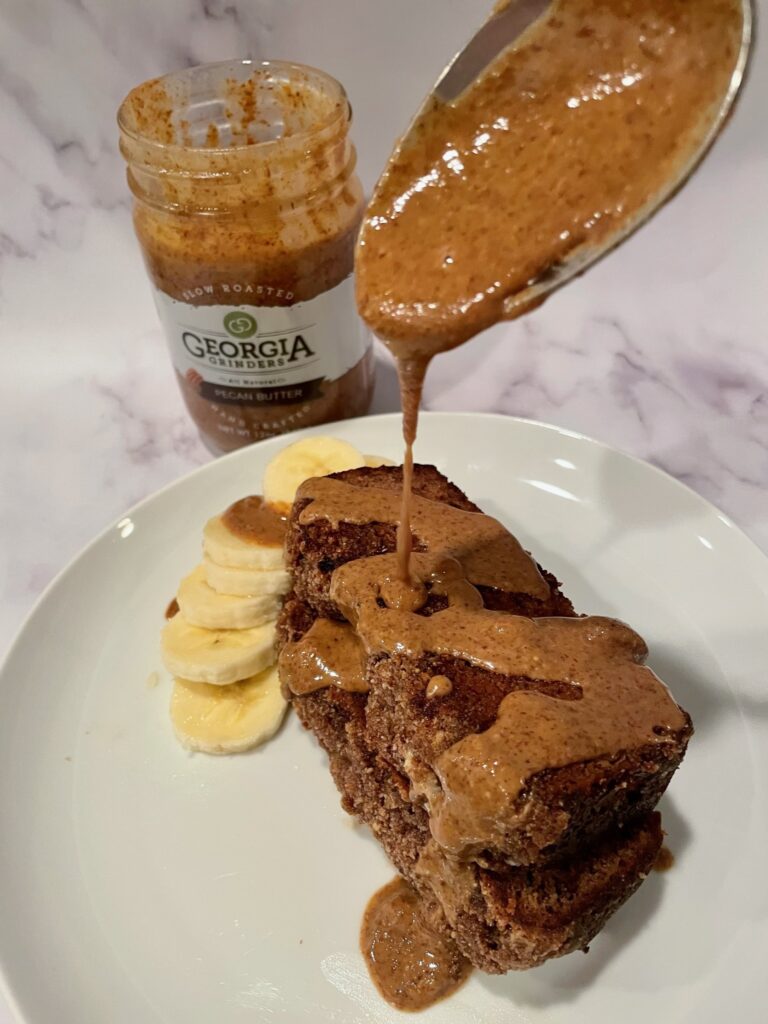
Let’s talk about the top quality of peanut butter – healthy fats! Peanut butter primarily contains two types of healthy fats: monounsaturated fats and polyunsaturated fats. These two healthy fats play a crucial role in our health. They support heart health, brain health and maintain optimal cholesterol levels. Nutrition basics revisited!
Monounsaturated fats:
These are the predominant type of fat found in peanut butter. They are known for their heart-healthy benefits, including reducing bad cholesterol levels and lowering the risk of heart disease. Monounsaturated fats also provide essential fatty acids that support various bodily functions.
Polyunsaturated fats
Peanut butter also contains polyunsaturated fats, including omega-6 and omega-3 fatty acids. These fats are important for brain health, reducing inflammation in the body, and supporting overall heart health. Omega-3 fatty acids, in particular, are known for their anti-inflammatory properties.
We call these fats, “good fats” for a few reasons. One is that they can help improve cholesterol levels which will reduce risk of heart disease and stroke. Additionally, diets high in monounsaturated fats have been shown to improve glycemic control and improve insulin resistance.
The average serving of peanut butter is around 2 tbsp, which would equate to approximately 14-16g of fat. About 10% of the total fat comes from saturated fat, and the remainder comes from those unsaturated fats – that’s a great ratio!
A reminder; fat is essential in your diet!
Fat is going to provide a long-lasting source of energy and help slow down the process of digestion and absorption. This will promote a prolonged feeling of fullness and can support weight loss. This mechanism will also effectively balance the rapid action of carbohydrates, and can prevent sudden spikes and drops in blood sugar levels. Fat also will enhance overall meal satisfaction and contribute to that “I’m full” feeling. Long story short, add fat to your meal to feel satiated and satisfied.
Does Peanut Butter have protein?
Yes, peanut butter does contain protein, although it’s not as high in protein as some other foods, and shouldn’t be considered a primary source of protein. On average, peanut butter contains about 7-8 grams of protein per 2 tablespoon serving. Compared to other sources of protein like meat, eggs, or greek yogurt, this is about ⅓ of what your protein serving should equal. You would need to eat upward of 8 tablespoons to get 25-30g of protein, which would be almost 700 calories and 56g of fat! Other excellent source of protein that will get you closer to that 20-25g of protein would be:
- A 4-5 oz salmon filet
- A small-medium sized chicken breast
- 4 pasture raised eggs
- One cup of greek yogurt
Wondering how much protein you need in a day? Click here to read more about how much protein women should be consuming.
Will peanut butter spike my blood sugar?
A 100% peanut butter, like Georgia Grinders, is a low glycemic food and will not spike your blood sugar. Any added ingredients, such as maple syrup or palm oil, can affect your blood sugar and should be avoided. Take it one step further and always aim to pair this creamy nutty spread with fiber-rich foods. This pairing, my beloved Fat and Fiber, can help balance blood sugar levels and keep you feeling full longer. Looking for new ways to enjoy PB and maintain blood sugar balance? Try one of these delicious ideas!
- Made into a creamy edible cookie dough paired with apple slices
- Mixed into the viral chocolate protein yogurt cup
- Drizzled on protein pancake bowls
- Paired with celery, berries or yogurt.
What’s the best peanut butter? 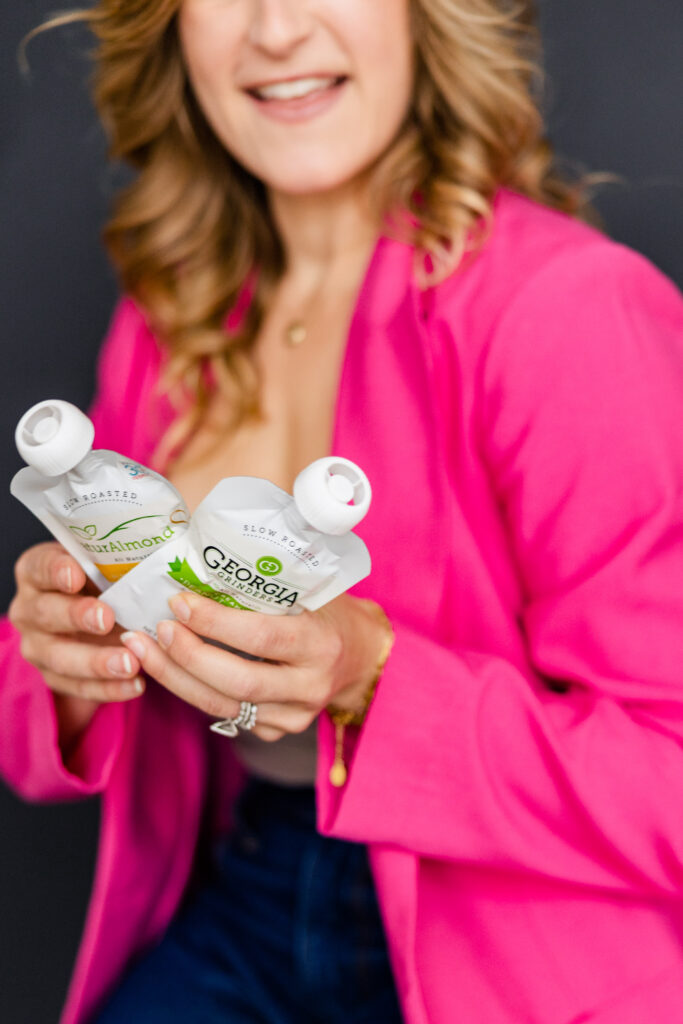
Without a doubt, Georgia Grinders! It is one of my favorite sources of healthy fats for a few reasons, those being:
- contain zero added oil or sugars
- have zero additives or preservatives.
- 100% Non-GMO crops
- made with kosher sea salt
Georgia Grinders peanut butter starts with NON-GMO, USA Organic peanuts from local Georgia farmers. They routinely test their nuts for pathogens such as aflatoxin and E. coli. Additionally, they use fresh kosher sea salt to give the salty flavor we love, without the unnecessary added ingredients for optimal flavor. As a Registered Dietitian, I value the quality of the products I put in my body and recommend to my patients, which is why I consider Georgia Grinder the best peanut butter.
What if I don’t like peanut butter?
Whether it’s an allergy or personal preference, peanut butter isn’t for everyone. Georgia Grinders has tons of peanut-free alternatives that are just as delicious and nutritious! Their almond butter is salty and full of calcium, while their cashew butter is silky smooth and full of vitamins & minerals.
Georgia Grinder’s commitment to using only natural ingredients and creating a top-notch, nutrient dense peanut butter is what makes them the best. If you’re looking for a healthy peanut butter to incorporate into your diet, I recommend you try Georgia Grinders. Skip the Jif and make the switch to Georgia Grinders today, and use my code WHITNESS to get 20% off their website.
Interested in working with a Registered Dietitian to better understand the function of food and how much protein you need, and how fat improves your health? Click here to schedule a call and get started on your Blood Sugar Bliss journey!
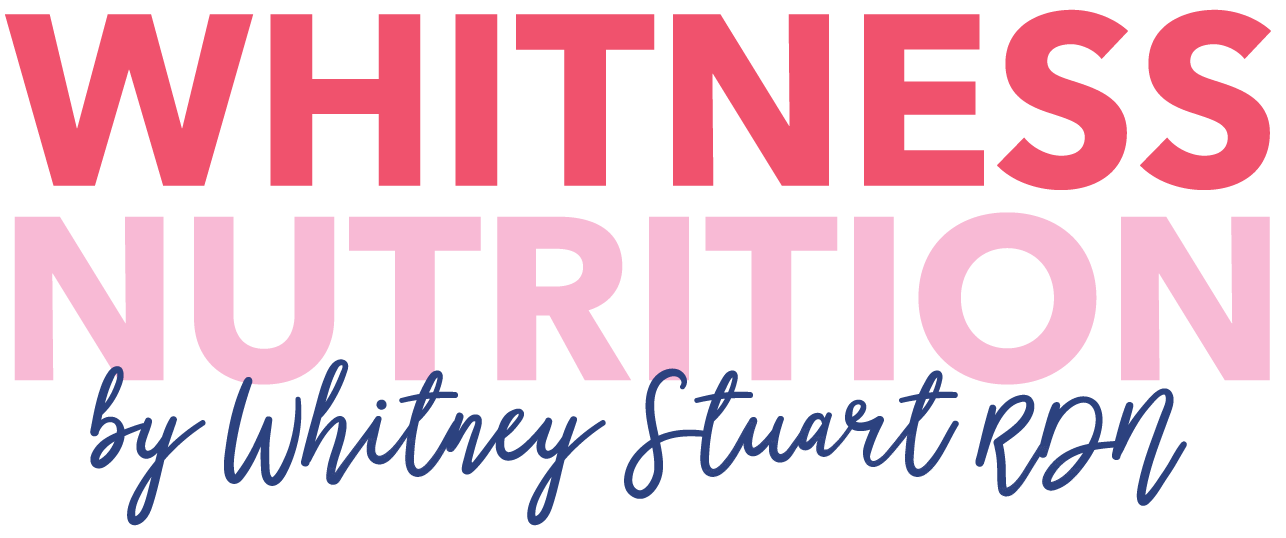

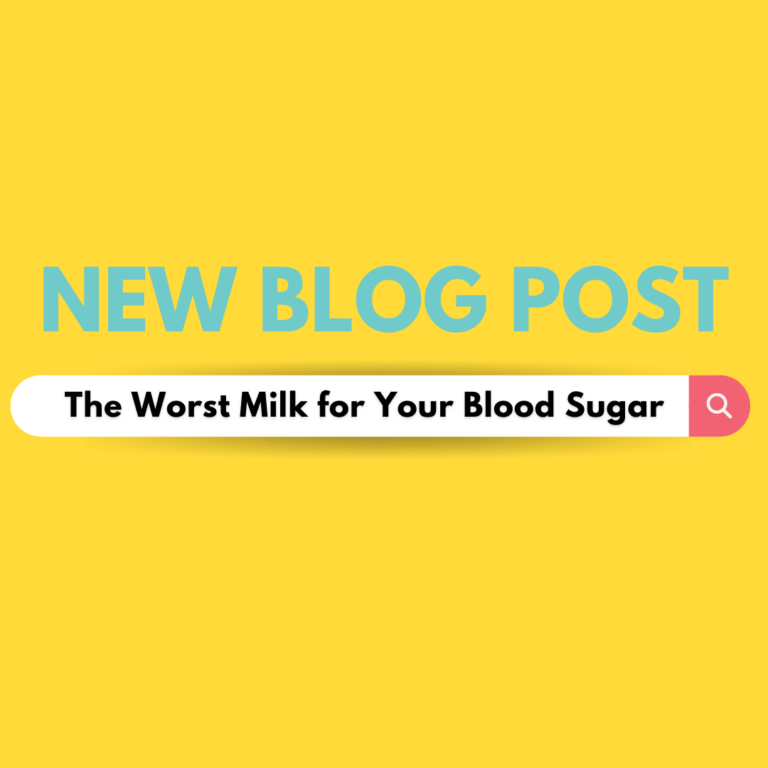
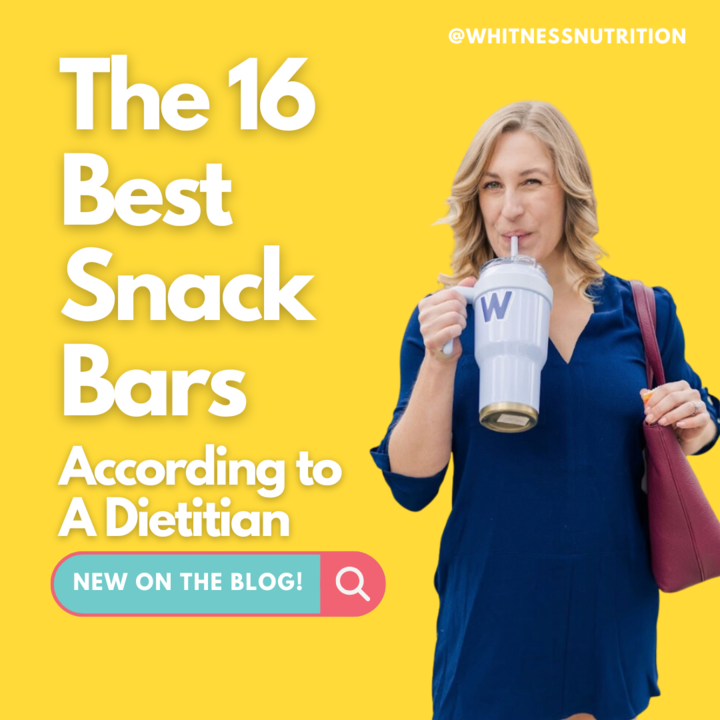



What’s the monkey business with the peanuts? and leave them eggs alone………….quack, quack…..
If you are going for best contents like I do, just go to see ths site every day as it offers quaslity contents,
thanks